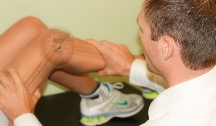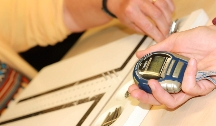Tips for your ticker
Caring for your heart through regular aerobic exercise and a healthy diet is similar to caring for the motor of your vehicle through regular maintenance. Like your motor, it is important to look at how you drive it on a daily basis. Most of our daily activities cannot be classified as aerobic (exercising your heart and lungs) but indeed, they all work on our hearts.
Prevent overload
Forcing a poor conditioned heart to work too hard for too long without sufficient rest (like letting our motor idle) and pressuring ourselves to complete tasks at all costs may lead to an overload. Often, it is not just what we do, but how we do it.
Get in condition
Athletes prepare for an event through graduated training, but do we take the time to condition our heart to meet the demands of heavy physical work?
Recharge your batteries
Through a program of regular exercise, broken up with relaxation periods to “recharge our batteries” we can prepare our heart for the strenuous work around our home and garden, such as snow shoveling, gardening, building a patio deck or doing the Spring clean-up.
Have some down time
Do we give our hearts enough time to recharge through getting enough sleep, relaxation, engaging in pleasurable activities and laughter? Our hearts are always working whether the task is physically or psychologically demanding. Having sufficient “down-time” between these demands is very important.
Plan your task first
Consider the tools and equipment you will use. Taking time to fetch a wheelbarrow or cart to move heavy objects will prevent overloading your heart.
Be aware of your environment
Extremes of heat and cold will make your heart work harder. Wind, dust and fumes, etc. can make breathing harder and thus reduce the oxygen supply to the heart. We tend to hold our breath while exerting ourselves, such as when we lift, carry, push or pull. This also decreases the oxygen supply to the heart.
Pace your activity
Frequent short breaks of one or two minutes in between bouts of exertion, such as raking, shoveling or vacuuming, can lower the load on your heart. Plan regular rest breaks into your schedule and stop when tired even if the job isn’t finished. There’s always another day!
Use your legs
Try to use your legs as much as possible when working rather than your arms, as your legs have the strongest muscles in your body and thus you will lessen the workload on your heart. Doing heavy work with your arms above your head significantly increases the load on your heart.
Budget your energy wisely and avoid saying “yes” to everything!
Remember, the better conditioned your heart becomes with regular aerobic exercise (that brisk walk three to five times per week), the better it will handle the demands of daily living.
These tips were written by Lorna Savak, an occupational therapist on the Cardiac Rehabilitation Unit at Glenrose Hospital in Alberta.
Adapted and reprinted with permission from the Alberta Association of Registered Occupational Therapists (AAROT). More skills for the job of living tips are available in the AAROT Marketing Kit, available by calling (780) 436-8381 or contacting the Association by e-mail or by visiting the AAROT web site.









